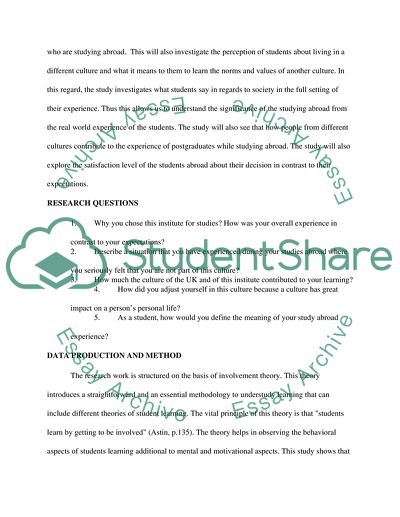Cite this document
(Study abroad: Cultural Differences of Students Research Paper, n.d.)
Study abroad: Cultural Differences of Students Research Paper. Retrieved from https://studentshare.org/culture/1654970-business-qualitative-research-report-to-use-a-semi-structured-or-an-unstructured-interview-process-to-discover-your-interviewees-views-and-perspectives-on-the-subject-of-the-experiences-of-postgraduate-students-who-study-abroad
Study abroad: Cultural Differences of Students Research Paper. Retrieved from https://studentshare.org/culture/1654970-business-qualitative-research-report-to-use-a-semi-structured-or-an-unstructured-interview-process-to-discover-your-interviewees-views-and-perspectives-on-the-subject-of-the-experiences-of-postgraduate-students-who-study-abroad
(Study Abroad: Cultural Differences of Students Research Paper)
Study Abroad: Cultural Differences of Students Research Paper. https://studentshare.org/culture/1654970-business-qualitative-research-report-to-use-a-semi-structured-or-an-unstructured-interview-process-to-discover-your-interviewees-views-and-perspectives-on-the-subject-of-the-experiences-of-postgraduate-students-who-study-abroad.
Study Abroad: Cultural Differences of Students Research Paper. https://studentshare.org/culture/1654970-business-qualitative-research-report-to-use-a-semi-structured-or-an-unstructured-interview-process-to-discover-your-interviewees-views-and-perspectives-on-the-subject-of-the-experiences-of-postgraduate-students-who-study-abroad.
“Study Abroad: Cultural Differences of Students Research Paper”, n.d. https://studentshare.org/culture/1654970-business-qualitative-research-report-to-use-a-semi-structured-or-an-unstructured-interview-process-to-discover-your-interviewees-views-and-perspectives-on-the-subject-of-the-experiences-of-postgraduate-students-who-study-abroad.


